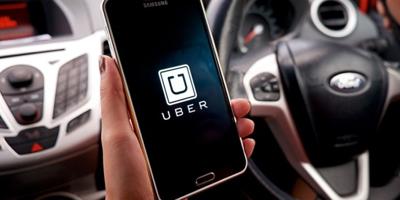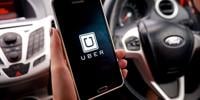
Ridesharing giant Uber has brought its widening legal offensive against personal injury lawyers and doctors to Los Angeles federal court, accusing two law firms and a doctor and his surgical practice of allegedly partnering in a well-worn conspiracy to inflate personal injury claims against Uber in pursuit of a payout under Uber's legally mandated $1 million insurance coverage.
On July 21, Uber filed suit in the U.S. District Court for the Central District of California against attorney Igor Fradkin and his firm, Downtown LA Law Group, and the Law Offices of Jacob Emrani, both of Los Angeles.
Orthopedic spinal surgeon Greg Khounganian and his medical practice, GSK Spine, of Encino, are also named as defendants in the action.
The lawsuit marks the latest in a series of actions launched by Uber in recent weeks against personal injury lawyers and doctors who Uber says are engaged in alleged schemes to use a pattern of alleged kickbacks and fraudulent or exaggerated diagnoses to inflate claims, often worth hundreds of thousands of dollars, against Uber's $1 million insurance policies.
These lawsuits accuse doctors and lawyers of allegedly conspiring in violation of the federal Racketeering Influence Corrupt Organizations (RICO) Act.
Uber had earlier filed such lawsuits against others in New York and Florida.
In the most recent action, Uber's anti-racketeering legal campaign came to California for the first time, where Uber says a large portion of the cost of every Uber ride goes to cover insurance costs mandated by law.
In Los Angeles County, for instance, Uber said about 45% of the cost paid by Uber riders is for insurance mandated by the state.
“Fraud and legal abuse raise costs for everyone—especially here in California, where excessively high government-mandated insurance limits for rideshare make companies like Uber a target for bad actors," said Adam Blinick, Uber's Head of State & Local Public Policy for U.S. and Canada, in a prepared statement.
"As this lawsuit shows, we won’t hesitate to act when we uncover misconduct on our platform.”
In the complaint, Uber accused the defendants of routinely targeting people who were involved in accidents involving vehicles driven by Uber's independent contractors.
Some of the clients are the Uber drivers, while others are people driving other vehicles involved in the collision.
But in many of the cases, Uber asserts the lawyers who recruit the clients then refer them to handpicked doctors, who then allegedly claim extensive injuries often requiring allegedly unnecessary surgeries or other expensive procedures, to drive up the claims the attorneys then file against Uber's insurance.
According to the complaint, Uber asserts the lawyers and doctors have allegedly "secretly enter into side agreements" allegedly involving a form of "kickbacks" in which the doctors allegedly agree to "substantially discount their bills," should the lawyers not recover enough from Uber and its insurers "to pay the artificially inflated medical bills."
"In exchange for a steady supply of claimants from the lawyers, certain medical providers agree to surrender their lien rights," Uber wrote in its complaint. "The lawyers profit because they receive priority recovery of their fees and other costs.
"The medical providers profit because when a claimant has a successful claim, the providers recover on most or all of their artificiallyinflated bills.
"And the lawyers and medical providers walk away with larger recoveries than their personal injury clients," Uber said.
The complaint included specific examples of several allegedly real cases in which the alleged pattern of fraud and kickbacks played out.
These included an instance involving a resident of St. Louis, Missouri, who was involved in a minor accident involving an Uber driver just before he returned home from L.A. According to the complaint, the man received medical care from his own doctors in Missouri, and had allegedly treated back pain symptoms through chiropractic care in St. Louis.
According to the complaint, this man - identified only as Claimant C - also posted a video of himself within weeks of the accident "bouncing, dancing, and singing as part of a music video."
However, after signing on as a client of the Downtown LA Law Group and signing the alleged "sham" lien agreements, "Claimant C" was flown to L.A. to see Khounganian for alleged "debilitating" back and neck pain, allegedly resulting from the accident.
According to the complaint, Khounganian recommended surgical procedures, potentially including disc replacement, and spinal injections, despite allegedly knowing these diagnoses were allegedly false and treatments unnecessary.
According to the complaint, Khounganian further paid for the man and his family to travel from Missouri to Los Angeles for lumbar surgery.
According to the complaint, Khounganian allegedly submitted a bill totaling $108,463. Uber claimed an independent expert "determined the reasonable value of those services to be $10,375.
Other claims, however, were for significantly more, including claims totaling more than $500,000 and $750,000, again for allegedly minor or exaggerated injuries.
According to the complaint, the allegedly false claims drive up Uber's legal bills to investigate, defend against and perhaps ultimately settle the claims, while also raising the cost of doing business in California, forcing all Uber customers to pay more to cover increased insurance costs exacerbated by the allegedly false and inflated claims.
"Fraudulent personal injury claims arising from minor motor vehicle collisions are an urgent and growing problem in California," Uber wrote in the complaint. "This fraud results in widespread harm to the public far beyond those involved in the litigations themselves by increasing insurance rates and transportation costs."
Uber is asking the court to order the defendants to pay damages, including restitution, general damages and punitive damages, plus attorney fees and interest.
Uber is represented in the action by attorney Oliver Gold and others with the firm Perkins Coie, of San Diego, Los Angeles, New York and Washington, D.C.






